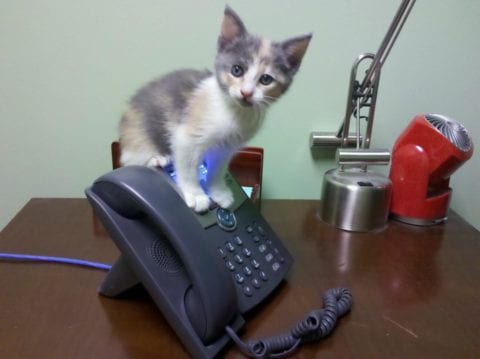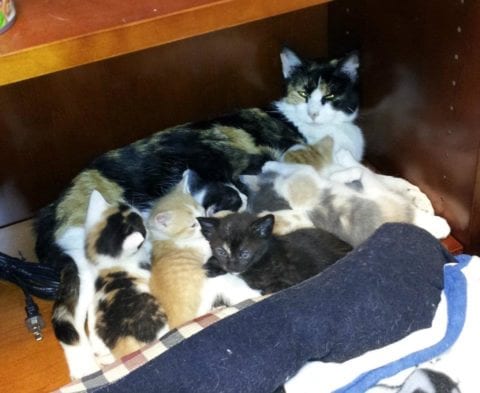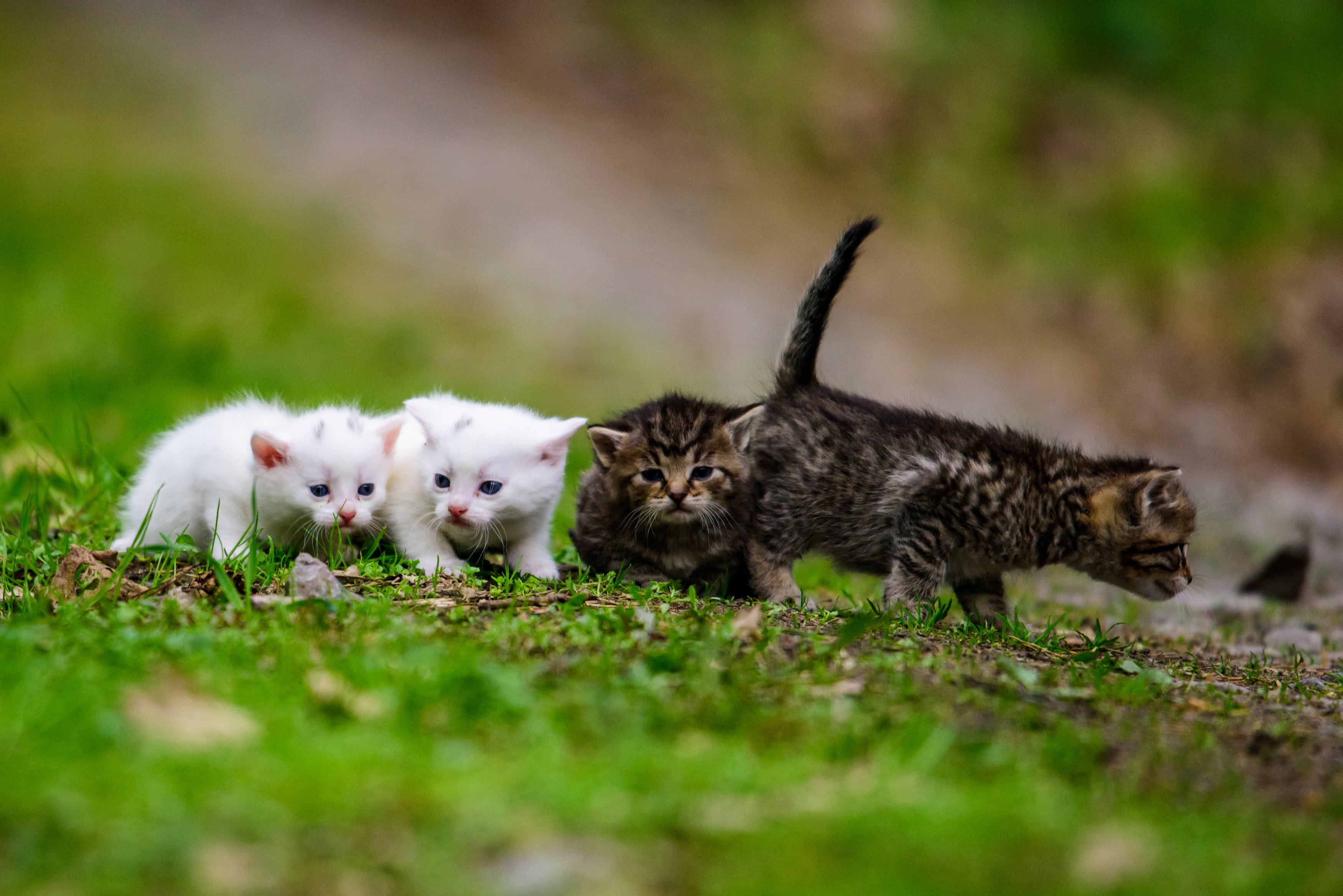Caring for Kittens 5 Weeks and Older
Once kittens are weaned and eating on their own they are no longer dependent on mom for food and can go to new homes. This is also a perfect time to catch mom and take her through our TNR program so this will be her last litter.
Essential items for older kittens

- Wet kitten food (if unable to find, a pate cat food will also work. The calorie content is lower, but pate is easier for kittens to eat than chunks/shreds)
- Dry kitten food
- Meat-based Gerber baby food for fussy/sick kittens
- Shallow food & water dishes
- Heat source (snuggle safe heating disk, heating pad, rice socks)
- Airline crate, wire crate, or enclosed mesh playpen for older (climbing) kittens
- Fleece or towels
- Non-clumping litter – clumping litter can prove life-threatening to kittens if ingested
- Dawn fragrance-free dish soap (for bathing kittens with fleas)
- Digital kitchen scale to weigh kittens
- Pyrantel can treat many intestinal worms and is available at most pet supply stores
- Mouse toys/crinkle balls
Tips to care for kittens Over 5 Weeks of Age:
- Kittens 5 weeks and older should already be eating on their own and no longer require mom’s milk or formula to survive
- Older kittens are prime candidates for fostering. Socializing the kittens prepares them to live happily in a new home.
- If fostering, kittens will be eligible for spay/neuter once they weigh at least 2 lbs. This is typically around 8 weeks of age
- The FVRCP vaccine, often referred to as “cat distemper”, will require at least one initial vaccine, followed by a second shot two to three weeks later. Ideally, kittens receive a final FVRCP vaccine after they are 4 months old
- The rabies vaccine should be administered when the kitten is 3 months old. Any immunity offered to the kittens by mom’s milk should wear off by then, allowing the vaccine to take effect
- The tips listed on this page are not a complete guide to caring for kittens. Click the following links for advice on raising infant kittens: The Kitten Lady or the National Kitten Coalition
Some older kittens may prove difficult to socialize, in which case they may be better served by a TNR program. Since they would not make good in-home pet companions, they can at least undergo sterilization, get a rabies shot, and then be returned to where they were initially found to live out their life as part of their parent’s colony.

